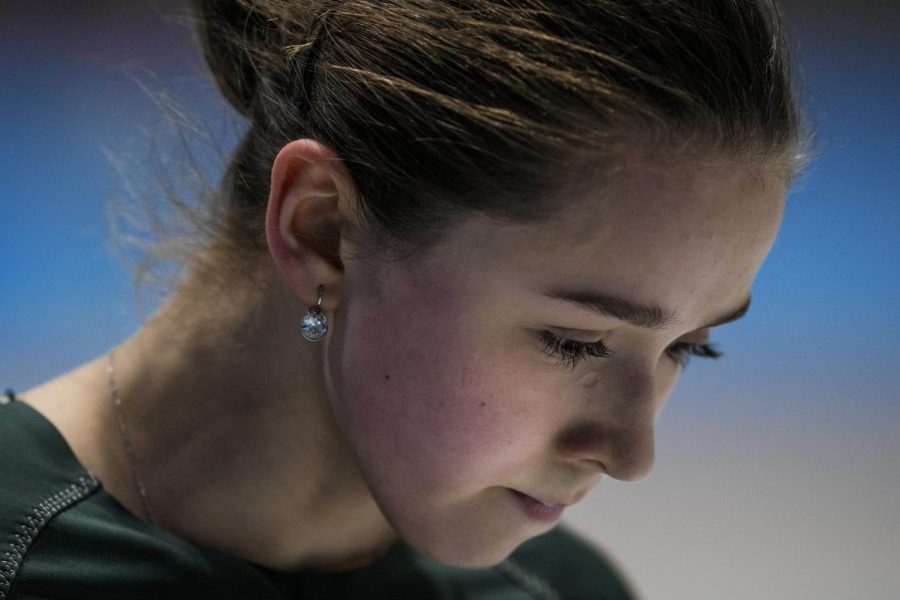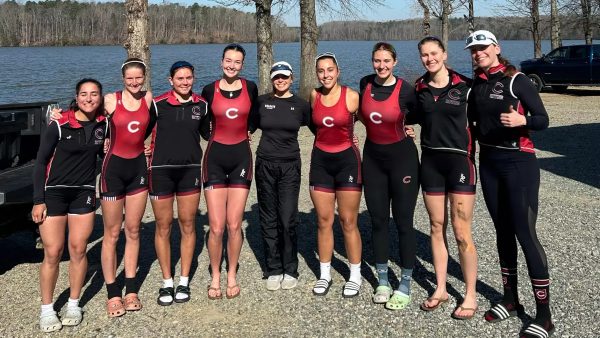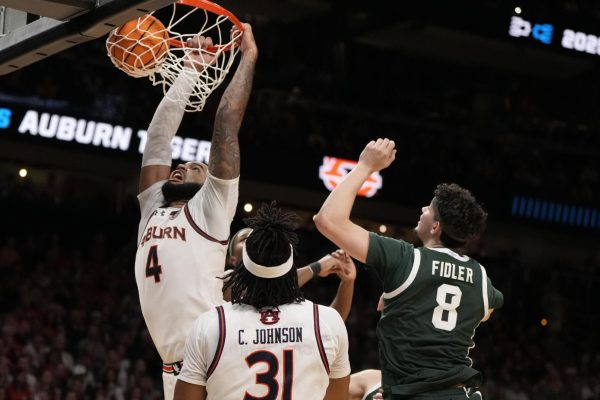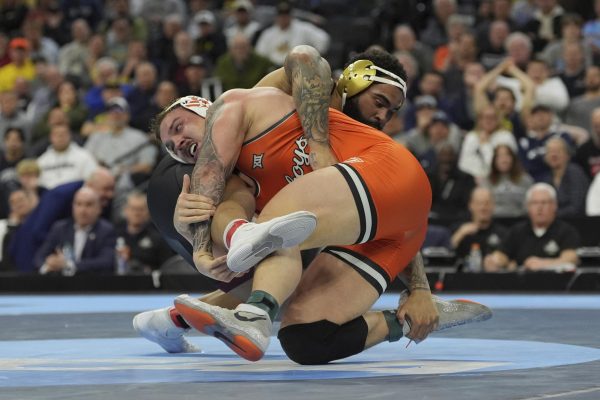Pity the White Girl?: Court of Arbitration for Sport Was Too Easy on Kamilia Valieva in Olympics Doping Case
“That poor girl, I hope the Olympics people don’t do anything to seriously punish her.” These words escaped my mouth while chatting about the doping scandal of 15-year-old Kamila Valieva on the phone with my grandmother last Sunday morning.
On Feb. 11, 2021, the International Testing Association announced that Valieva, a Russian figure skater, tested positive for trimetazidine on Dec. 25 at the Russian National Championships. Trimetazidine, a heart medication that’s said to bolster endurance, is characterized as “a risky substance that could be used to boost athletic performance under antidoping rules,” according to The Wall Street Journal.
“That poor girl, her career is totally ruined now,” I said last Sunday evening, sitting across from my best friend in Frank Dining Hall as I impaled chunks of syrupy pineapple in a too-tiny ceramic bowl. My best friend nodded resolutely.
The doping scandal in which Valieva is enmeshed in is unsurprising given Team Russia’s history in the Olympics — competing under the Russian Olympic Committee and not the country at these games because of the country’s suspension caused by their state-sponsored doping program from 2010 to 2015, according to The Guardian. Over this five-year span, Russia toyed with the doping samples of more than 1,000 athletes.
Listening to NPR’s Morning Edition while running on the treadmill on Monday, I could finally relax. Through my airpods and between the tap of my black Nike sneakers on black plastic tread, echoed the cheery voice of NPR sports correspondent Tom Goldman:
“In a decision that sent shockwaves through the Olympic sports movement, 15-year-old figure skating phenom Kamila Valieva will be allowed to skate Tuesday in the women’s single skating competition in Beijing.”
The ruling was made by three individuals appointed by the Court of Arbitration for Sport (CAS) in Beijing. The Court’s decision followed testimony from Valieva and other witnesses. Valieva, supported by witnesses, maintained that the positive drug test was the result of her taking her grandfather’s heart medication, according to The Guardian.
Thank gosh, thank gosh they treated that poor girl fairly, I thought to myself. I should really tell the world about this. What better way than to turn to the Maroon-News.
I resolved to write of the pain of being a 15-year old girl, of feeling like you do not have control, of bending to external pressure to do what you do not want to. I was ready to write of Valieva’s story in the vein of, the “Olympic-Committee-did-the-right-thing,” of “pity-and-forgiveness-are-important.”
I planned to think of past Olympic contexts; I ran through Olympic drug scandals in recent history in my head – Lance Armstrong and Sha’Carri Richardson came to mind. Sha’Carri Richardson.
Who could forget the energetic, orange-haired Team USA sprinter. I certainly would not have been able to write an “Olympic-Committee-did-the-right-thing,” “pity-and- forgiveness-are-important” article about her case.
The 20-year old African American sprinter was given a one-month ban from the Olympics following her testing positive for marijuana in the Oregon Olympic trials. She was dropped from both the 100-meter race and the relay in 2021. She did not board the plane for Tokyo.
Richardson’s biological mother died the week before her Olympic trial. Richardson, raised by her grandmother, learned about her biological mother’s death from a reporter.
“It sent me into a state of emotional panic,” Richardson told NBC following the trial. “I didn’t know how to control my emotions or deal with my emotions during that time.”
The announcement of Valieva’s positive drug test came two months after the fact – Valieva tested positive for the drug on Dec. 25, 2021. On Feb. 7. 2022, she competed in a group skating event. Her December test results were withheld and not used until February, allowing her to compete in the group skate with no issue.
Both Valieva and Richardson were favored to place in the top three of their respective events — only Valieva was able to see this seeding come to fruition.
“My name and talent [were] slaughtered to the people,” Richardson Tweeted on Feb. 14, later adding, “Not one BLACK athlete has been about to compete with a case going on, I don’t care what they say!!!”
I could not find any either.
Velieva may be facing lenient treatment due to a new anti-doping code followed by CAS that “created additional room to arrive at a solution other than an automatic suspension” for athletes under the age of 16, according to The Wall Street Journal. CAS had brought forward a small caveat– if Valieva places in the top three in the womens’ singles, she will not be medaled until a full investigation into her positive test concludes.
“Preventing [Valieva] to compete at the Olympic Games would cause her irreparable harm in these circumstances,” CAS director general Matthieu Reeb shared at a press conference, according to NPR.
Why was none of this sympathy extended to Richardson last year? Is it simply that Valieva’s vulnerability due to age trumps Richardson’s vulnerability due to an emotionally trying death of her mother?
Richardson and Valieva’s cases are not the same. Sha’Carri, though faced with the unbelievable anguish of losing a parent, ingested marijuana willingly, through it’s not a performance-enhancing drug. It is improbable that Valieva ingest a performance enhancing drug entirely at her own will.
Valieva cannot be held wholly accountable for her positive test. However, the problem is that the Court has placed no accountability on anyone or in any form for her positive test. No coaches, no parents, no other individuals in her circle. Following the positive drug tests, Valieva’s white skates quadruple jumped over ice in Beijing while Richardson remained in Dallas, her spikes not so much as grazing the surface of the tracks of Tokyo.
I regret naming Valieva a “poor girl” as I did when I talked to my grandmother and best friend last Sunday. Valieva, trimetazidine and all, spins untouched over a court that refuses to hold her accountable in any way but did not hesitate to remove a Black athlete.
I want more clarity from the court on their decision. I want Valieva’s coaches and staff to be held as accountable for this behavior as Sha’Carri was for her actions.
Although I do not wholly contend that the only difference between Valieva and Richardson’s cases is that of race, I resonate with Richardson’s frustrations expressed on Twitter on Feb. 14.
“Can we get a solid answer on the difference [between] her situation and mine?” Richardson tweeted. “My mother died and I can’t run and was also favored to place top 3. The only difference I see is I’m a black young lady.”







